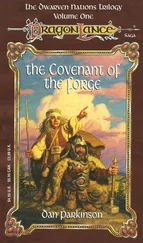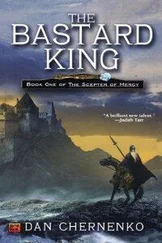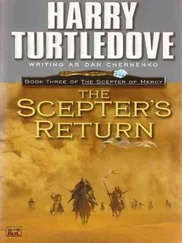He started to write advice for how to deal with the Thervings when they had a strong king, then realized that was foolish. When Thervingia had a weak king, it wasn’t dangerous to Avornis. He was glad he’d avoided making a fresh muddle in the text. One of these days, a secretary would make a fair copy of this manuscript so Crex—and maybe others who came after Crex—could read it. Even without a new muddle, Lanius pitied that secretary. His own script was spidery, and the manuscript marred by scratch-outs, arrows sending what was written here to be placed there, words and sometimes sentences squeezed in between lines, and every other flaw that annoyed him when someone else committed it.
After putting down on parchment what was, in his judgment, the best way to keep Thervingia from causing trouble, he read over what he had written. If someone who really faced trouble from the Thervings read this, would it do him any good? Lanius found himself shrugging. He really didn’t know. He didn’t suppose it would hurt. That would have to do.
When he left the archives, he went to the moncats’ room. Several of the beasts came up to him in search of handouts. Like any cats, they liked him better when he had presents than when he didn’t. “Sorry,” he said. “I didn’t stop in the kitchens.”
They kept sending him slit-eyed, reproachful stares. He perched on a stool and watched them. After a little while, they seemed to forget he was there, and went back to scrambling on their framework of boards and branches, to eating from the bowls of meat that were always there for them, and to snuggling up not far from the braziers that kept their chamber warm. They were less sensitive to cold than his mustachioed monkeys, but they still enjoyed the heat from the braziers. He paid more attention to the moncats than to the monkeys these days, probably because the moncats got into more mischief.
He looked around for Pouncer. He at least half expected not to find the moncat. Would it be off in the kitchen stealing spoons, or had it gone off to the archives to hunt mice while he came here? But no, Pouncer lolled by a brazier, not quite asleep but not inclined to do much more than loll, either.
“You are a nuisance,” Lanius told the moncat. “You’re worse than a nuisance—you’re a pest.”
Praise of that sort seemed to be what Pouncer wanted most. The moncat rolled and stretched, all without going any farther from the warmth. Lanius laughed. Pouncer would be charming for as long as it cared to be, and not a heartbeat longer. Then it would go back to being a pest again.
He watched Pouncer. Pouncer watched him. After watching for a while, Pouncer decided it didn’t want to stay by the brazier anymore. It scrambled up the framework of boards and branches Lanius had had made so the moncats could feel more as though they were living in the forest. Two other moncats higher up on the framework squared off against each other, snarling and hissing. As usually happened, one of them intimidated the other, which backed down. Sometimes, though, they would fight.
When Lanius looked back to see what Pouncer was up to, he frowned and scratched his head. Where was the moncat?-He couldn’t find it.
He looked up and down the frame. He looked back toward the brazier. He looked all around the moncats’ chamber. Then, for good measure, he looked again. He rubbed his eyes and looked for a third time.
Pouncer had disappeared.
Lanius got up and examined the part of the frame where Pouncer had been the last time he paid any attention to the moncat. He also examined the wall behind the frame. It looked like the brickwork that made up much of the rest of the palace. As far as the king could tell, Pouncer might have dug a hole, jumped into it, and pulled the hole in after itself.
How long did I take my eye off Pouncer to watch the other beasts? Lanius wondered. Half a minute? A minute? Maybe even a minute and a half? No more than that, surely. How far could an unwatched moncat go in, at most, a minute and a half?
Far enough, evidently.
“Cursed thing,” Lanius said. If he had been paying attention, he would finally have found out Pouncer’s secret. Instead, the moncat had outsmarted him. He could almost hear Bubulcus’ mocking voice. Which is hardly a surprise to anyone who knows them both, the servant would say.
But Bubulcus was dead. Remembering that brought Lanius up as sharply as seeing—or rather, not seeing—Pouncer vanish. The servant had mocked once too often, and paid too high a price.
Where was Pouncer now? Somewhere in the spaces between the walls, heading for—where? The kitchens? The archives? Someplace else, a spot known only to the moncat? How did the beast find its way in what had to be absolute darkness? Smell? Hearing? Touch?
Those were all wonderful questions. Lanius had less trouble coming up with them than he’d had finding questions to answer for How to Be a King. He’d replied to those questions. These? No.
Staying here until Pouncer reappeared might give him at least some of the answers he wanted so badly. Of course, the moncat, left to its own devices, might not come back for days—might not, in fact, come back at all. Put a servant in here to watch? Keep sending in servants in shirts until Pouncer returned? Lanius shook his head. Opening and closing the door so often would only give the rest of the moncats chances to escape. And how much attention would servants pay if they did come in and watch? Not enough, probably.
What to do, then? Lanius let out a few soft curses, just enough to make some of the moncats look his way again. This was one of the rare times when he wished he took the field. He was convinced the curses of fighting soldiers had an unmatched sonorous magnificence.
As things were, once he got done swearing the best thing he could think to do was leave the moncats’ room. Sooner or later, Pouncer would turn up somewhere. Then the beast would go back in here… and then, sooner or later, it would escape again.
And maybe, with a little luck, I’ll get to see it escaping next time, Lanius thought.
The road to Hrvace, the easternmost of the Chernagor city-states that had joined Nishevatz in harrying Avornis, would have been as good as any Grus had seen in the north country. He wouldn’t have had to worry about ambushes or anything else while traveling it. It would have been, if a driving rainstorm from off the Northern Sea hadn’t turned it into a bottomless ribbon of mud. As things were, horses sank to their bellies, wagons to their hubs or deeper. Moving forward at all became a desperate struggle. Moving forward in a hurry—the very idea was laughable.
But Grus knew he had to move forward in a hurry if he wanted to punish Hrvace for what it had done. That same rain was ruining the last of the harvest hereabouts. Living off the land wouldn’t be easy. Living off the land would, in fact, be just as hard as moving forward in a hurry.
“We have to,” Grus said.
“Your Majesty, I don’t work miracles,” Hirundo replied, more than a little testily. “And if my horse goes down into the mud all the way to its nose so it drowns, I won’t go forward one bit, let alone fast.”
“You don’t work miracles,” Grus said. He raised his voice and shouted for Pterocles. The rain drowned his voice as effectively as mud would have drowned Hirundo’s horse. He shouted again, louder.
Eventually, Pterocles heard him. Even more eventually, the wizard fought his way to the king’s side. “What do you need, Your Majesty?” Pterocles asked.
Grus looked up into the weeping heavens, and got a faceful of rain for doing it. “Can you make this stop?” he inquired.
Pterocles shook his head. Water dripped from the end of his nose and from his beard. “Not me, Your Majesty, and any other wizard who says he can is lying through his teeth. Wizards aren’t weatherworkers. Men aren’t strong enough to do anything about rain or wind or sun. The Banished One could, but I don’t suppose you’d want to ask him.”
Читать дальше











